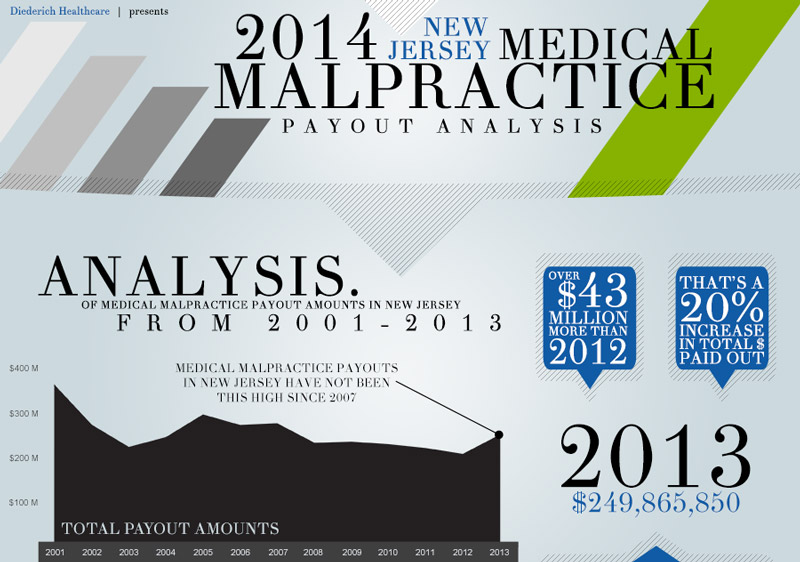Recently, MagMutual, a medical liability insurance company governed by the Medical Association of Georgia, has invested $50 million dollars in new patient safety initiatives. The investment came as a result of a net gain in MagMutual’s profits resulting from an overall reduction in claim activity against its insured’s since 2005. The company currently insures over 18,000 physicians in Georgia and will utilize all of their historical claim data to develop statistical analyses in an effort…
As a result of an increased number of lawsuits involving medical malpractice due to poor risk management practices, many professional liability carriers are now offering multiple opportunities for physicians to learn best practices while also earning credits toward their premium. The training focuses on quality assurance through identifying risk, minimizing risk, and reducing the impact when losses occur.1 By implementing strategies for improving existing methods, both the physician and the carrier benefit by reducing the…
In addition to full-time physicians, many group practices employ physicians that work part-time. When this is the case, arranging a slot policy for those physicians may be the most convenient and cost effective route. The way slot coverage works is on a “full-time equivalency” (FTE) basis. This means that the premium for the “slot” is based on how many hours, collectively, the part-time physicians will be working in a week. For example, if there are…
An experienced malpractice agent has access to multiple carriers – giving you multiple options and can save you a lot of money. A good, experienced malpractice insurance agent will provide you with all of your available options at renewal every year along with his/her recommendations. An experienced malpractice agent works on your behalf with the insurance carriers—to insure that your best interests are being served. An experienced malpractice agent strives to have the best possible…
Purchasing a tail insurance policy can prove to be a burden to healthcare providers when retiring, changing employers or under other circumstances which might require the termination of a claims-made policy. Gone are the days when the only options were to “go bare” or purchase tail insurance for the significant premium offered by the incumbent carrier. Diederich Healthcare equips physicians with multiple options for standalone tail insurance policies. Extended reporting period (better known as “tail”)…
Do you ever feel like your malpractice insurance policy overcharges for part-time medical providers sharing patients and hours with another provider? Many group practices employ both full-time and part-time physicians. When this is the case, arranging a slot policy for those physicians may be the most convenient and cost effective route for the practice’s medical professional liability insurance. The way slot coverage works is on a “full-time equivalency” (FTE) basis. This means that the premium…
Remaining independent and complying with the Affordable Care Act (signed into law in March of 2012), is difficult while possible for independent and small group practices. However, given the difficulties, a large percentage of currently practicing physicians and medical practices have moved to an employee arrangement. Further, approximately 75% of new graduates intend to be employees of a large system over the next five years. The current independent practices and small group practices have good…
Undoubtedly, one of the largest issues facing physicians today is the Patient Protection and Affordable Care Act, otherwise known as the ACA. The bill, which was passed on March 23rd, 2010, outlined comprehensive health care reform initiatives that will eventually change the landscape of physician practice as we currently know it. Although opinions on the Act and what it means for health care delivery are highly divided, one thing is for certain – the changes…

Following great feedback from our 2014 Medical Malpractice Payout Analysis, we are proud to be releasing a payout analysis specific to New Jersey.

Multiple studies have revealed a disparity of the perceived effectiveness of communication from the standpoint of the physician and from that of the patient. The manner in which a physician communicates health information to a patient is often as important as the information itself. In a recent survey of patients treated by orthopedic surgeons, 75% of the physicians believed they communicated satisfactorily with the patients, while only 21% of patients felt they received adequate communication….


Recent Comments